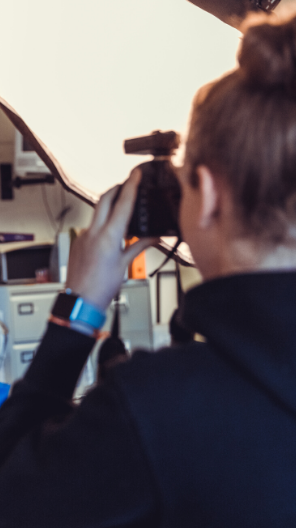
Media Studies
The media plays a central role in contemporary society and culture. It shapes our perceptions of the world through the representations, viewpoints and messages it communicates. The media provides us with ways to interact with one another, it facilitates forms of cultural expression and it promotes participation in many aspects of society.
Media Curriculum philosophy and intent statement
Media industries employ huge numbers of people worldwide and operate as commercial industries on a global scale. It is likely that our students will witness a continued growth in the use and importance of different types of media as technology changes and develops. Media Studies offers young people opportunities to engage with contemporary and relevant texts that help them to define their place within the world.
As teachers we aim to be experts in our subject. We need to ensure that our own developed knowledge of media enables students to secure their understanding of key issues. Our focus must be on the effective communication of knowledge, whilst offering opportunities for students to debate important questions about the media through the use of a theoretical framework. In this way, students are able to apply and test their understanding.
We aim to recognise the fundamental relationship between theoretical understanding and practical work, providing learners with exciting opportunities to develop media production skills. Students apply and develop their knowledge and understanding of language and representation in relation to media forms and products, and become creators of meaning themselves. Furthermore, they are offered a choice of briefs and forms within which to work, enabling them to explore and pursue their own media interests.
The study of a range of rich and stimulating media products is central to this specification, working from the product outwards to develop appreciation and understanding of the media and its context. Students draw on their existing experience, but they also extend their appreciation and critical understanding through the study of products with which they may be less familiar.
We focus predominantly on contemporary media, although this is contextualised and enhanced through the exploration of significant products from different historical periods. Through studying both established and evolving media forms, learners gain a true awareness of the role of the media in society and culture.
At the heart of our subject we aim to equip students with knowledge and skills that develop through the GCSE course and inform study at A Level. These skills include independent enquiry, critical thinking, decision-making and analysis. Although these skills are integral to media they offer a skill set that is transferable to other academic disciplines and future employment opportunities. We teach this subject in order to nurture an appreciation and critical understanding of the role of the media in society, culture and politics.
Media curriculum content statement
The media play a central role in contemporary society and culture, shaping our perceptions of the world through viewpoints, representations and the messages they offer.
Media Studies challenges us to look at the media in a different way, examining how the modern media industry works, analysing and decoding different media texts and considering how meaning is made for us. Media Studies offers students the opportunity to develop knowledge and understanding of key issues and the ability to debate important questions about the media.
During the course students will study a broad and diverse range of historic and contemporary media forms in terms of a theoretical framework consisting of media language, representation, media industries and audiences. The following texts are studied in depth: Advertising and marketing, film, video games, music videos, radio, social and participatory media, magazines and newspapers.
Through this study, students will gain an understanding of the foundations of the subject, enabling them to question and explore aspects of the media that may seem familiar and straightforward from their existing experience in a critical way. Studying less familiar media forms provides rich and challenging opportunities for interpretation and analysis.

The content of our curriculum also reflects the need for students to gain a secure contextual and cultural knowledge base. Media Studies allows students to examine historical, social, political and economic contexts that operate within the media. Studying relevant contexts enhances and deepens students understanding of the media, as they explore key influences on the products studied.
Our teachers are passionate about Media Studies and its increasing importance within the evolving society that we live in. Media courses are designed to help students develop practical and theoretical skills. We aim to ensure that the delivery of the Media curriculum remains relevant and contemporary, enhanced by our own subject knowledge and we will always seek to develop our expertise.
The Media course recognises the relationship between theory and practical work, providing students with opportunities to develop media production skills. Students will apply and develop their knowledge and understanding of media language and representation, becoming creators of media texts.
Assessment
The courses are split as follows:
Component 1:
Exploring the Media - External Assessment (40%)
Component 2:
Understanding Media Forms and Products - External Assessment (30%)
Component 3:
Creating Media Products - Internal Assessment (30%)
The GCSE will be graded 9-1. The A Level will be graded A-E.
Media curriculum offer
In KS3 students participate in a 2-week Media Studies module, delivered in Year 9 Computing lessons.
KS4 students can study the following courses
- GCSE - students study Eduqas GCSE Media Studies
KS5 students can study the following courses
- A Level - students study Eduqas A Level Media Studies

